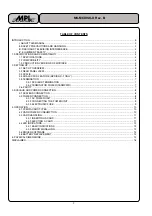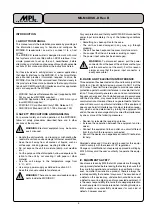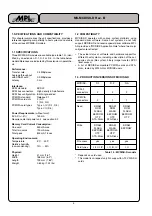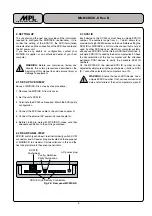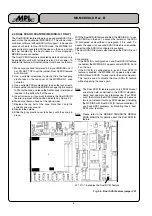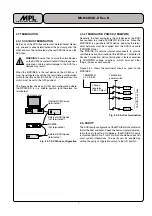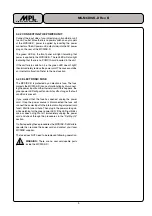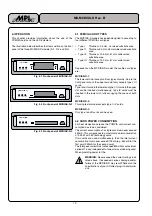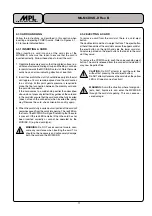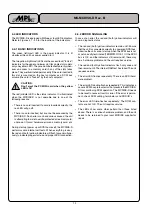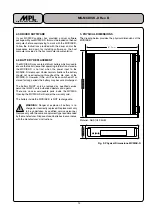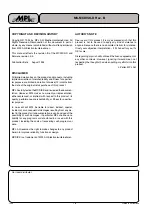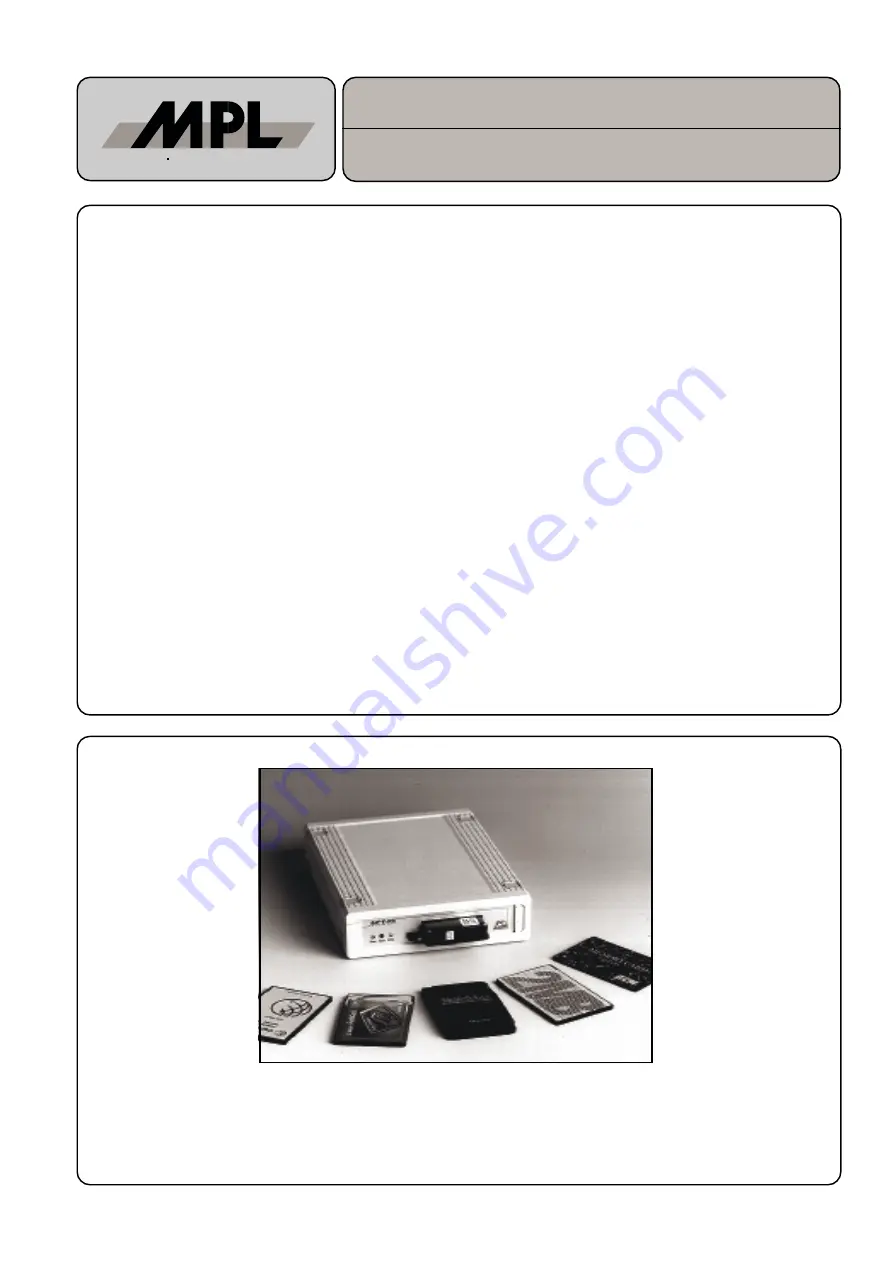
© 1994 by MPL AG
1
MS-MCDISK-D Rev. B
USER'S MANUAL
High-Tech Made in Switzerland
MEH-10000-005 Rev. B
PCMCIA/JEIDA CARD READER/WRITER WITH SCSI INTERFACE
The MCDISK-D (Memory Card Disk) is a card reader/writer for PCMCIA/JEIDA compatible memory cards. MCDISK-D can
handle a wide variety of cards of any size: SRAM, ROM, OTP, E(E)PROM, FLASH and PC-ATA disks (mechanical/silicon) as
well as user specific I/O cards. To interface those cards to the host equipment MCDISK-D has an SCSI interface. The SCSI
interface is widely used for connecting mass storage devices like hard disks to microcomputers.
MCDISK-D comes in a compact desktop case. One MCDISK-D model offers a double card slot which allows for simultaneous
use of two memory cards. Memory cards and disks up to Type IV (14.2 mm thickness) can be used.
However, although the reader/writer device is economically priced, no concessions have been made in its performance. It
provides a fully professional yet highly economic solution to individual demands for data transfer and storage. This makes the
MCDISK-D ideal for use in many industrial, business and home applications with SCSI data input and/or output.
TECHNICAL FEATURES
• Desktop case with compact dimensions: 158x199x41 mm
• Interfaces PCMCIA/JEIDA Memory Cards to any system
with an SCSI interface
• Double card slot version available
• Separate SCSI ID for dual-slot versions can be configured
• SRAM, ROM, OTP, E(E)PROM, FLASH, I/O card and PC-
ATA disk support
• Card sizes 512 Byte up to 64 MByte (PC-ATA: 4 GByte)
• Memory card types I, II, III and IV are supported
• Supports direct access to entire memory card (raw access)
• Built-in socket- and card services feature transparent ac-
cess to card data for PCMCIA-unaware host systems
• High data security through block check capability
• Local 68HC11 processor
• SCSI interface with 33C93 SCSI controller
• Standard SCSI command set
• Two SCSI-2 connectors allow for SCSI bus chaining
• Switchable active SCSI termination
• UL listed
• FCC Class B compliance
• Low power consumption, typ. 150 mA (no card inserted)
• Needs external power unit, 9VAC/600mA min.
References :
MS-MCDISK-D-1 Rev. B: PCMCIA/JEIDA Reader/Writer, double PCMCIA/JEIDA (type I…IV) card slot
MS-MCDISK-D-2 Rev. B: PCMCIA/JEIDA Reader/Writer, single PCMCIA/JEIDA (type I…IV) card slot
MS-MCDISK-D-3 Rev. B: PCMCIA/JEIDA Reader/Writer, single PCMCIA/JEIDA (type I/II slot) card slot (ON REQUEST)


